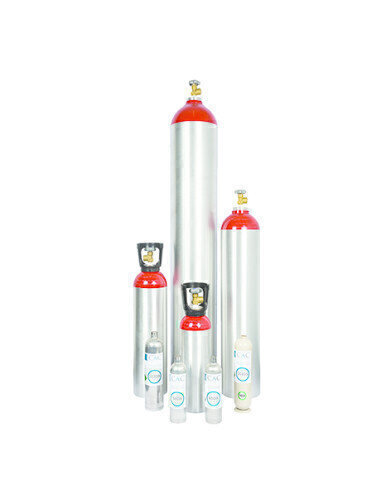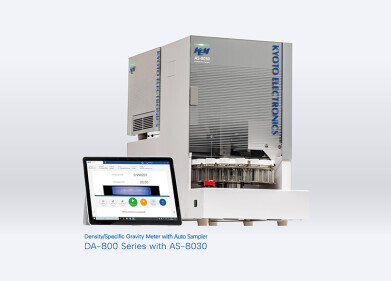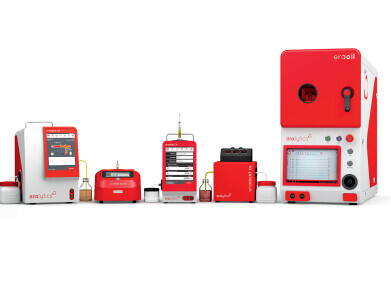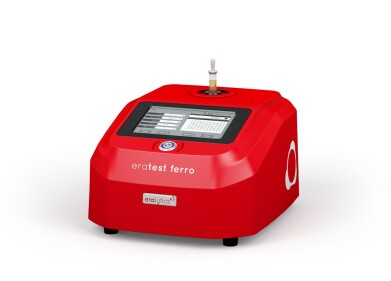Analytical Instrumentation
How dangerous is a calibration gas cylinder?
Nov 30 2020
Calibration gas cylinders are considered dangerous goods but how dangerous are they really? After all, most gas calibration gases are classified as “non-toxic, non-flammable” gases.
Aside from the obvious hazards associated with flammable and toxic gases, all compressed gas cylinders have associated hazards which the user should be aware of.
It is important to understand the difference in UN DG classification and recognise dangers when using and handling cylinders. Even cylinders where contents are classified as non-toxic and non-flammable can be hazardous to health.
As noted in a previous article by CAC Gas, chlorine 2000ppm and below, in nitrogen, is considered non-toxic and non-flammable. As all occupational health and safety professionals know, concentrations of 2000ppm chlorine are very toxic (TWA: 1 ppm; STEL: 0.5ppm).
Always read the SDS! Relying on the transport classification is not sufficient. Gases can vary greatly in danger, even if they are within the same UN classification.
Calibration gas cylinders can be pressurised between about 3 to 300 BAR. On the outside, a cylinder filled to 3 BAR will appear the same as one filled to 300 BAR. A cylinder filled to a higher fill pressure represents a greater danger if it is punctured, cracked or damaged.
It is unlikely for a cylinder to undergo explosive decompression without having suffered some sort of external damage. Certain cylinder types filled with certain components can be structurally compromised through chemical reactions over time. Refillable cylinders must undergo hydrostatic pressure testing every 10 years and non-refillable cylinders are single use only. Signs of such potential failures would be evident long before structural failures occurred.
Cylinders which undergo rapid or violent decompression can become missiles and cause significant damage. It is important not to underestimate the potential damage a venting cylinder can cause.
Secure your cylinders using mounts. Never leave cylinders where they can be bumped or knocked over. Avoid placing cylinders where there is potential for the valve to contact another object if it were to fall. Be careful when moving cylinders. When storing cylinders, ensure the protective valve cap is installed.
Rapid decompression can cause the cylinder to become extremely cold. Gases cool when they decompress, and temperatures can reach harmful levels if the decompression is violent enough. If the cylinder contacts skin, cold burns can result.
If you have a cylinder which is quickly decompressing do not attempt to touch the cylinder until sufficient time has passed to allow the cylinder to come back to ambient temperature.
Some cylinders are upwards of 70Kg with a relatively small base to stand on. If a cylinder topples do not attempt to catch it or steady it as serious injury may occur.
Although it is not a good idea to leave your gas cylinders in direct sunlight, heat from sunlight alone will not cause your cylinder to explode. Calibration gas cylinders typically have working pressures at about half the burst pressure rating. To reach the burst pressure the cylinder would need to be exposed to extreme temperatures, such as in a fire.
Some cylinders are equipped with a pressure relief device. This device is designed to vent cylinder contents before the cylinder reaches burst pressure. It is conceivable that naturally occurring heat (such as strong sunlight on a hot day) could cause venting of cylinder contents.
Digital Edition
PIN 25.1 Feb/March
March 2024
In This Edition Safety - The technology behind the ION Science Tiger XT - Safety with ammonia and LOHCs as hydrogen carriers Analytical Instrumentation - Discussion on new tribology te...
View all digital editions
Events
Apr 24 2024 Mumbai, India
Apr 24 2024 Jakarta, Indonesia
Apr 28 2024 Montreal, Quebec, Canada
Apr 30 2024 Birmingham, UK
May 03 2024 Seoul, South Korea


















